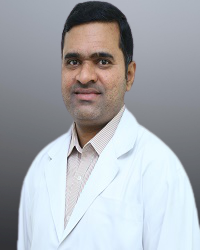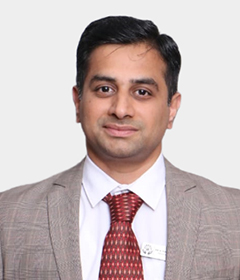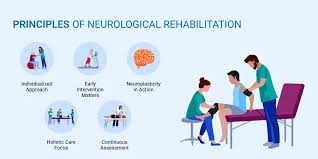Neuro-rehabilitation
Neuro-rehabilitation is a specialized medical field that focuses on helping individuals recover from neurological injuries or conditions that affect the brain, spinal cord, or nervous system. These conditions may result from a variety of causes, such as stroke, traumatic brain injury, spinal cord injury, multiple sclerosis, Parkinson’s disease, and other neurological disorders. The goal of neuro-rehabilitation is to restore function, improve quality of life, and help patients regain independence to the greatest extent possible.
Who Needs Neuro-rehabilitation?
Neuro-rehabilitation is crucial for individuals who have suffered neurological injuries or conditions that impair their physical, cognitive, or emotional abilities. Common conditions that may require neuro-rehabilitation include:
- Stroke: Caused by the interruption of blood flow to the brain, leading to neurological deficits such as weakness, speech difficulties, or paralysis.
- Traumatic Brain Injury (TBI): Resulting from accidents or falls, TBI can cause a wide range of physical, cognitive, and emotional impairments.
- Spinal Cord Injury: Injury to the spinal cord can lead to paralysis, sensory loss, and loss of motor control.
- Multiple Sclerosis: An autoimmune disease that affects the brain and spinal cord, causing symptoms such as muscle weakness, difficulty walking, and vision problems.
- Parkinson’s Disease: A neurodegenerative disorder that leads to tremors, stiffness, and balance issues.
- Cerebral Palsy: A group of disorders affecting movement and posture, usually caused by brain injury during early childhood development.
- Dementia & Alzheimer’s Disease: Neurodegenerative diseases affecting cognitive functions, memory, and daily activities.
Key Areas of Neuro-rehabilitation
Neuro-rehabilitation focuses on several key areas to ensure that patients achieve the best possible recovery:
1. Physical Rehabilitation:
Physical rehabilitation is aimed at improving mobility, strength, coordination, and overall physical function. This may involve:
- Physical Therapy: Exercises and techniques to strengthen muscles, improve balance, and increase range of motion.
- Occupational Therapy: Helping patients regain the ability to perform everyday tasks such as dressing, eating, and bathing.
- Gait Training: Teaching individuals to walk with the use of assistive devices (e.g., walkers, canes) or without them.
- Spinal Cord Injury Rehabilitation: Focusing on mobility, bladder control, and strength restoration.
2. Cognitive Rehabilitation:
Cognitive rehabilitation focuses on restoring and enhancing cognitive functions such as memory, attention, problem-solving, and decision-making. Methods include:
- Memory Training: Techniques to improve memory retention and recall.
- Attention and Focus Exercises: Activities designed to improve concentration and attention span.
- Executive Functioning Skills: Helping patients regain the ability to plan, organize, and execute daily tasks.
3. Speech and Language Therapy:
For patients experiencing speech, swallowing, or communication difficulties due to neurological conditions, speech and language therapy plays a key role. This may include:
- Speech Therapy: To improve articulation, fluency, and voice quality.
- Language Therapy: To help patients improve their ability to understand and produce speech.
- Swallowing Therapy: Techniques to help patients regain the ability to swallow safely.
4. Emotional and Psychological Support:
Neuro-rehabilitation also focuses on addressing the emotional and psychological impact of neurological injuries and conditions. This may include:
- Counseling and Therapy: Providing emotional support and helping patients manage anxiety, depression, and other mental health concerns.
- Psychological Support for Caregivers: Educating and supporting caregivers, as they play a crucial role in the rehabilitation process.
Multidisciplinary Approach in Neuro-rehabilitation
A comprehensive neuro-rehabilitation program involves a team of specialists working together to provide holistic care:
- Neurologists: Medical doctors specializing in brain and nervous system disorders, responsible for diagnosing and treating the neurological condition.
- Physiotherapists: Experts in physical rehabilitation who help patients recover motor skills and mobility.
- Occupational Therapists: Specialists who focus on helping patients regain the ability to perform daily activities independently.
- Speech and Language Therapists: Professionals who help patients recover communication and swallowing functions.
- Psychologists: Provide counseling and mental health support to patients and their families.
- Nurses and Care Coordinators: Assist in managing treatment plans and ensuring the well-being of patients during the recovery process.
Neuro-rehabilitation Techniques
Several advanced techniques are used in neuro-rehabilitation to enhance recovery, including:
- Task-Oriented Training: Focuses on repetitive practice of functional tasks that are specific to daily life, improving movement and coordination.
- Neuroplasticity-based Approaches: Encourages the brain to form new neural connections, promoting recovery of lost functions.
- Virtual Reality (VR) Therapy: Uses VR technology to simulate real-life scenarios for therapy, particularly in stroke and brain injury rehabilitation.
- Robot-Assisted Therapy: Robotic devices are used to assist patients with repetitive movements, helping them regain strength and mobility.
- Electrical Stimulation Therapy: Low-frequency electrical pulses are applied to muscles or nerves to aid in recovery.
The Neuro-rehabilitation Process
The neuro-rehabilitation process typically involves the following stages:
- Initial Assessment: A detailed evaluation of the patient’s medical history, neurological condition, and rehabilitation needs.
- Personalized Treatment Plan: Based on the assessment, a customized rehabilitation plan is developed, targeting specific goals and recovery milestones.
- Therapy Sessions: Regular therapy sessions are conducted, which may include physical therapy, speech therapy, and cognitive therapy.
- Ongoing Monitoring and Adjustments: Continuous evaluation of progress with adjustments made to the treatment plan as needed.
- Post-Rehabilitation Care: Support is provided even after formal rehabilitation to ensure that the patient maintains progress and achieves long-term independence.
Why Choose Healtour Solutions for Neuro-rehabilitation?
Healtour Solutions offers access to world-class neuro-rehabilitation services in India, with the following benefits:
- Top Specialists: We connect you with leading neurologists, physiotherapists, and rehabilitation experts who specialize in neurological recovery.
- State-of-the-art Facilities: Our partner hospitals and rehabilitation centers are equipped with advanced technologies and resources to support effective rehabilitation.
- Comprehensive Care: Our multidisciplinary approach ensures that all aspects of recovery, including physical, cognitive, emotional, and social, are addressed.
- Affordable Treatment: We offer high-quality neuro-rehabilitation care at a fraction of the cost compared to many Western countries, making it accessible to patients worldwide.
- Personalized Treatment Plans: We tailor rehabilitation programs to meet the individual needs of each patient, ensuring the best outcomes for recovery.
Step-by-Step Process for Neuro-rehabilitation
- Initial Consultation & Assessment:
- The first step involves a detailed consultation with a neurologist or rehabilitation specialist. During this session, the patient's medical history, the extent of the neurological condition, and specific recovery goals are discussed. A thorough physical and cognitive assessment is performed to identify the areas that need focus.
- Customized Treatment Plan:
- Based on the initial assessment, a personalized rehabilitation plan is created. This plan may include physical therapy, speech therapy, occupational therapy, and cognitive rehabilitation. The plan is tailored to the individual's unique needs and recovery potential.
- Therapy Sessions:
- Regular therapy sessions are conducted, which may involve:
- Physical Therapy (PT): Exercises designed to improve movement, strength, and coordination.
- Occupational Therapy (OT): Training to help patients regain the ability to perform everyday tasks like dressing, cooking, and bathing.
- Speech Therapy: Focus on restoring communication skills and improving swallowing abilities.
- Cognitive Rehabilitation: Exercises to improve memory, attention, problem-solving, and decision-making.
- Monitoring & Progress Evaluation:
- Ongoing monitoring of progress takes place throughout the rehabilitation period. This includes tracking the patient's physical, cognitive, and emotional responses to therapy. Adjustments are made to the treatment plan as needed.
- Family and Caregiver Involvement:
- Neuro-rehabilitation often involves family members and caregivers, who are educated about the rehabilitation process and how to provide the best support at home. This ensures the patient remains motivated and continues their recovery outside of therapy sessions.
- Post-Rehabilitation Support:
- After formal rehabilitation, the patient is provided with follow-up care and support. Regular check-ins help maintain progress, and any ongoing rehabilitation needs are addressed.
Contact Us for Neuro-rehabilitation
If you or a loved one is in need of neuro-rehabilitation, Healtour Solutions is here to provide expert guidance and world-class care. Contact us today to connect with top specialists and begin the journey toward recovery.
10 Frequently Asked Questions (FAQs)
- What is neuro-rehabilitation?
- Neuro-rehabilitation is a medical process aimed at helping individuals recover from neurological conditions such as stroke, traumatic brain injury, spinal cord injuries, and neurodegenerative diseases. It involves a combination of physical, cognitive, and emotional therapy.
- How long does neuro-rehabilitation take?
- The duration of neuro-rehabilitation depends on the severity of the neurological condition and the patient's response to therapy. Rehabilitation can last from a few weeks to several months, with ongoing maintenance even after the initial phase.
- Is neuro-rehabilitation suitable for stroke patients?
- Yes, neuro-rehabilitation is highly effective for stroke patients. It helps improve mobility, speech, and cognitive function, enabling patients to regain independence and enhance their quality of life.
- What therapies are included in neuro-rehabilitation?
- Neuro-rehabilitation typically includes physical therapy, occupational therapy, speech therapy, cognitive rehabilitation, and emotional/psychological support, depending on the patient's needs.
- Can neuro-rehabilitation help with Parkinson's disease?
- Yes, neuro-rehabilitation plays a vital role in managing Parkinson's disease by improving mobility, flexibility, balance, and speech, helping patients maintain independence for a longer time.
- How is progress in neuro-rehabilitation measured?
- Progress is measured through regular assessments by rehabilitation professionals. These include evaluating improvements in mobility, cognitive abilities, speech, and emotional well-being.
- Is neuro-rehabilitation available for children?
- Yes, neuro-rehabilitation is also available for children, especially those with conditions like cerebral palsy, brain injuries, or developmental delays. Pediatric neuro-rehabilitation is specialized to meet the unique needs of children.
- Is neuro-rehabilitation covered by insurance?
- Many health insurance policies cover neuro-rehabilitation services, but it varies by plan. We recommend checking with your insurance provider for specific coverage details.
- Can I continue neuro-rehabilitation at home?
- Yes, after the initial phase of rehabilitation, home-based therapy can be arranged. Occupational and physical therapists can guide caregivers to continue exercises at home.
- How do I choose the right neuro-rehabilitation center in India?
- Healtour Solutions connects you with top-rated hospitals and rehabilitation centers in India, offering a team of specialists who will provide personalized care and rehabilitation for your condition.



